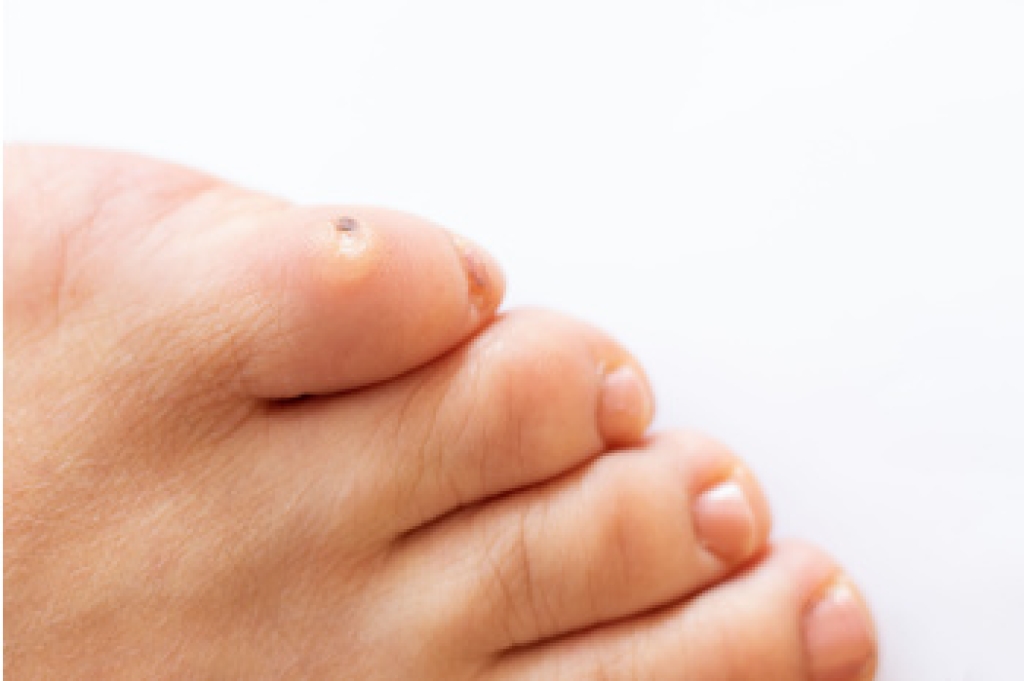
Corns, also known as helomas, are a common foot condition characterized by thickened, hardened areas of skin that develop in response to friction or pressure. These small, round, or conical lesions typically form on the toes, sides of the feet, or on weight-bearing areas. Corns result from repetitive rubbing or friction against footwear or adjacent toes, leading to the accumulation of dead skin cells. Wearing ill-fitting shoes, high heels, or tight socks, or having foot deformities such as hammertoes or bunions can increase the risk of corn formation. Additionally, activities that involve prolonged standing or walking contribute to increased pressure on the feet, further predisposing individuals to corns. Poor foot hygiene and inadequate moisture control may also contribute to corn development. While corns are generally harmless, they can cause discomfort, pain, and difficulty wearing shoes. If you have developed a corn on your foot, it is suggested that you visit a podiatrist who can offer you effective treatment methods.
If you have any concerns regarding your feet and ankles, contact Jennifer M. Kern, DPM of South Carolina. Our doctor will treat your foot and ankle needs.
Corns: What Are They? and How Do You Get Rid of Them?
Corns can be described as areas of the skin that have thickened to the point of becoming painful or irritating. They are often layers and layers of the skin that have become dry and rough, and are normally smaller than calluses.
Ways to Prevent Corns
There are many ways to get rid of painful corns such as wearing:
- Well-fitting socks
- Comfortable shoes that are not tight around your foot
- Shoes that offer support
Treating Corns
Treatment of corns involves removing the dead skin that has built up in the specific area of the foot. Consult with Our doctor to determine the best treatment option for your case of corns.
If you have any questions, please feel free to contact our office located in West Columbia, SC . We offer the newest diagnostic and treatment technologies for all your foot care needs.



